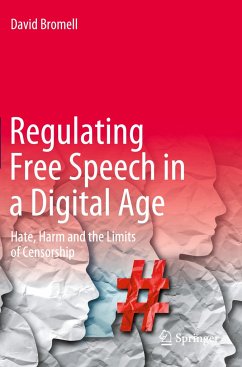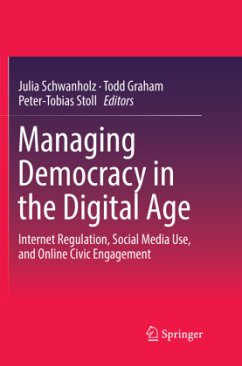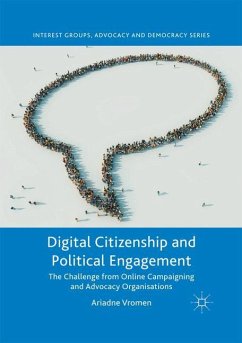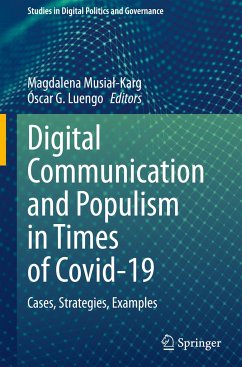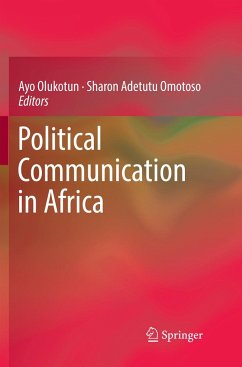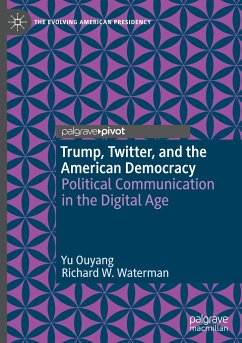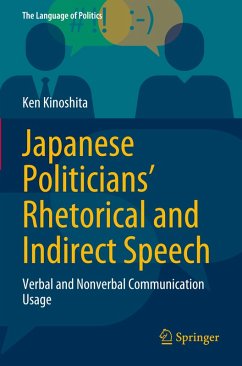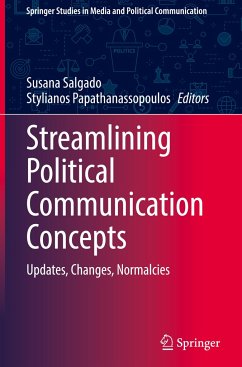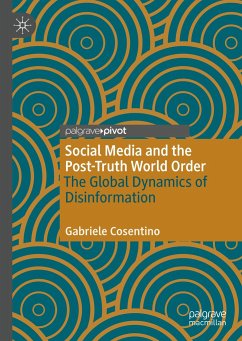
Regulating Free Speech in a Digital Age
Hate, Harm and the Limits of Censorship
Versandkostenfrei!
Versandfertig in 6-10 Tagen
65,99 €
inkl. MwSt.
Weitere Ausgaben:

PAYBACK Punkte
33 °P sammeln!
Hateful thoughts and words can lead to harmful actions like the March 2019 terrorist attack on mosques in Christchurch, New Zealand. In free, open and democratic societies, governments cannot justifiably regulate what citizens think, feel, believe or value, but do have a duty to protect citizens from harmful communication that incites discrimination, active hostility and violence.Written by a public policy advisor for fellow practitioners in politics and public life, this book discusses significant practical and moral challenges regarding internet governance and freedom of speech, particularly...
Hateful thoughts and words can lead to harmful actions like the March 2019 terrorist attack on mosques in Christchurch, New Zealand. In free, open and democratic societies, governments cannot justifiably regulate what citizens think, feel, believe or value, but do have a duty to protect citizens from harmful communication that incites discrimination, active hostility and violence.
Written by a public policy advisor for fellow practitioners in politics and public life, this book discusses significant practical and moral challenges regarding internet governance and freedom of speech, particularly when responding to content that is legal but harmful. Policy makers and professionals working for governmental institutions need to strike a fair balance between protecting from harm and preserving the right to freedom of expression. And because merely passing laws does not solve complex social problems, governments need to invest, not just regulate. Governments, big tech and the private sector, civil society, individual citizens and the fourth estate all have roles to play, and counter-speech is everyone's responsibility.
This book tackles hard questions about internet governance, hate speech, cancel culture and the loss of civility, and illustrates principled pragmatism applied to perplexing policy problems. Furthermore, it presents counter-speech strategies as alternatives and complements to censorship and criminalisation.
Written by a public policy advisor for fellow practitioners in politics and public life, this book discusses significant practical and moral challenges regarding internet governance and freedom of speech, particularly when responding to content that is legal but harmful. Policy makers and professionals working for governmental institutions need to strike a fair balance between protecting from harm and preserving the right to freedom of expression. And because merely passing laws does not solve complex social problems, governments need to invest, not just regulate. Governments, big tech and the private sector, civil society, individual citizens and the fourth estate all have roles to play, and counter-speech is everyone's responsibility.
This book tackles hard questions about internet governance, hate speech, cancel culture and the loss of civility, and illustrates principled pragmatism applied to perplexing policy problems. Furthermore, it presents counter-speech strategies as alternatives and complements to censorship and criminalisation.





